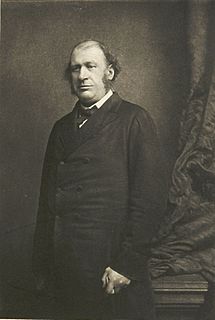A Quote by Scott Turow
The issue is not whether there are horrible cases where the penalty seems "right". The real question is whether we will ever design a capital system that reaches only the "right" cases, without dragging in the wrong cases, cases of innocence or cases where death is not proportionate punishment. Slowly, even reluctantly, I have realized the answer to that question is no- we will never get it right.
Related Quotes
I support the death penalty. I think that it has to be administered not only fairly, with attention to things like DNA evidence, which I think should be used in all capital cases, but also with very careful attention. If the wrong guy is put to death, then that's a double tragedy. Not only has an innocent person been executed but the real perpetrator of the crime has not been held accountable for it, and in some cases may be still at large. But I support the death penalty in the most heinous cases.
To me this question whether liberty is a good or a bad thing appears as irrational as the question whether fire is a good or a bad thing. It is both good and bad according to time, place, and circumstance, and a complete answer to the question, In what cases is liberty good and in what cases is it bad? would involve not merely a universal history of mankind, but a complete solution of the problems which such a history would offer.
History has got a lot to do with unique circumstances under certain particular cases and grand theories will always find counter cases. I don't think that people whose expertise lies in one thing should try to make grand theories about something (a) where it's very hard to get the evidence to prove that you're right and (b) where it's much too easy to make up stories that seem right.
The moment we face it frankly we are driven to the conclusion that the community has a right to put a price on the right to live in it ... If people are fit to live, let them live under decent human conditions. If they are not fit to live, kill them in a decent human way. Is it any wonder that some of us are driven to prescribe the lethal chamber as the solution for the hard cases which are at present made the excuse for dragging all the other cases down to their level, and the only solution that will create a sense of full social responsibility in modern populations?
Let's put it in perspective at the United States Supreme Court, which hears maybe 60 cases a year, most of the cases are resolved without much dispute. The 10 or 15 that are controversial we all know about, and we hear about. The federal courts hear just a tiny sliver of the cases that go to court in this country. Most of the cases are in the state courts. And most legal issues never go to court. So, the legal system is actually not in jeopardy. At the same time, access to law is in jeopardy.






































